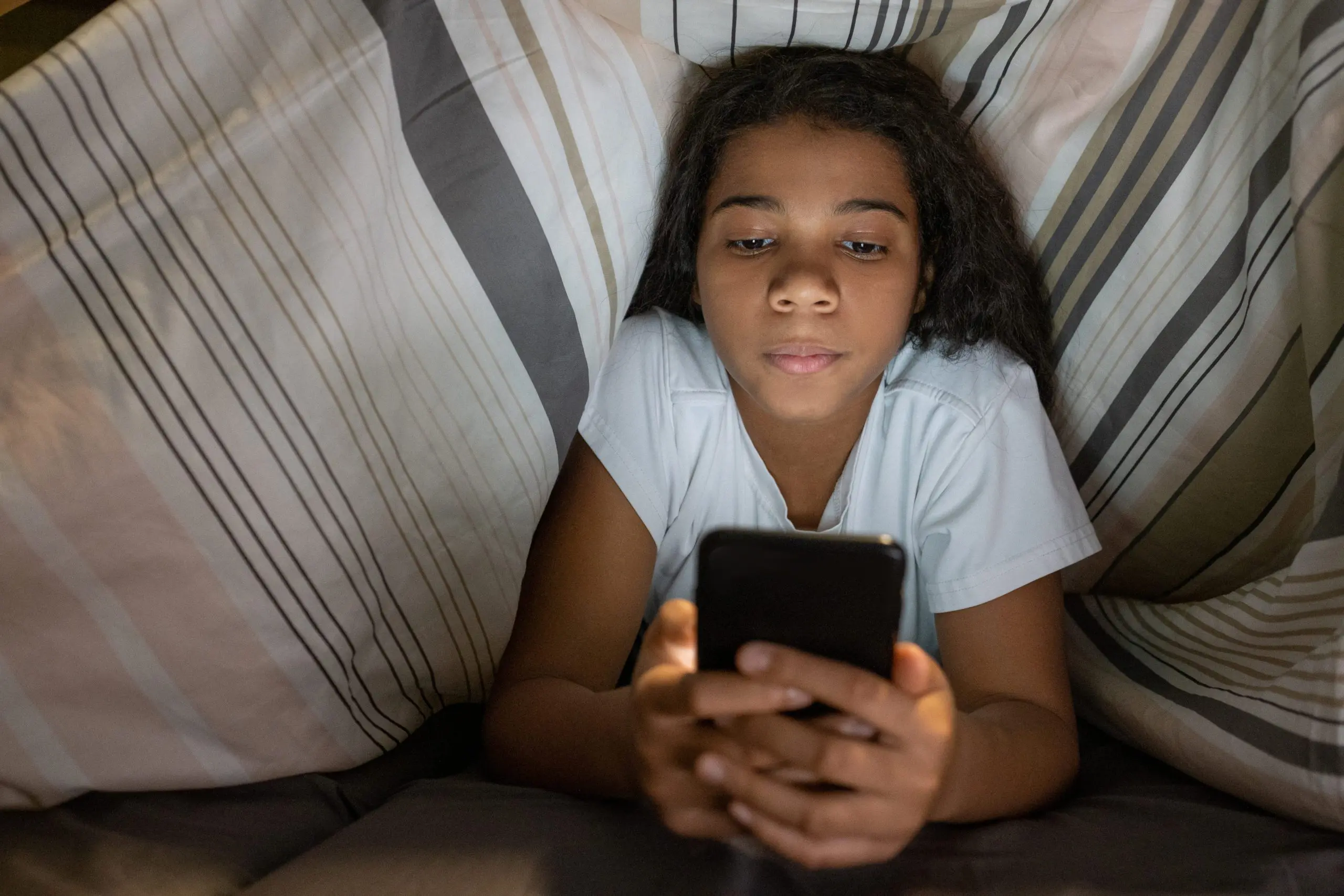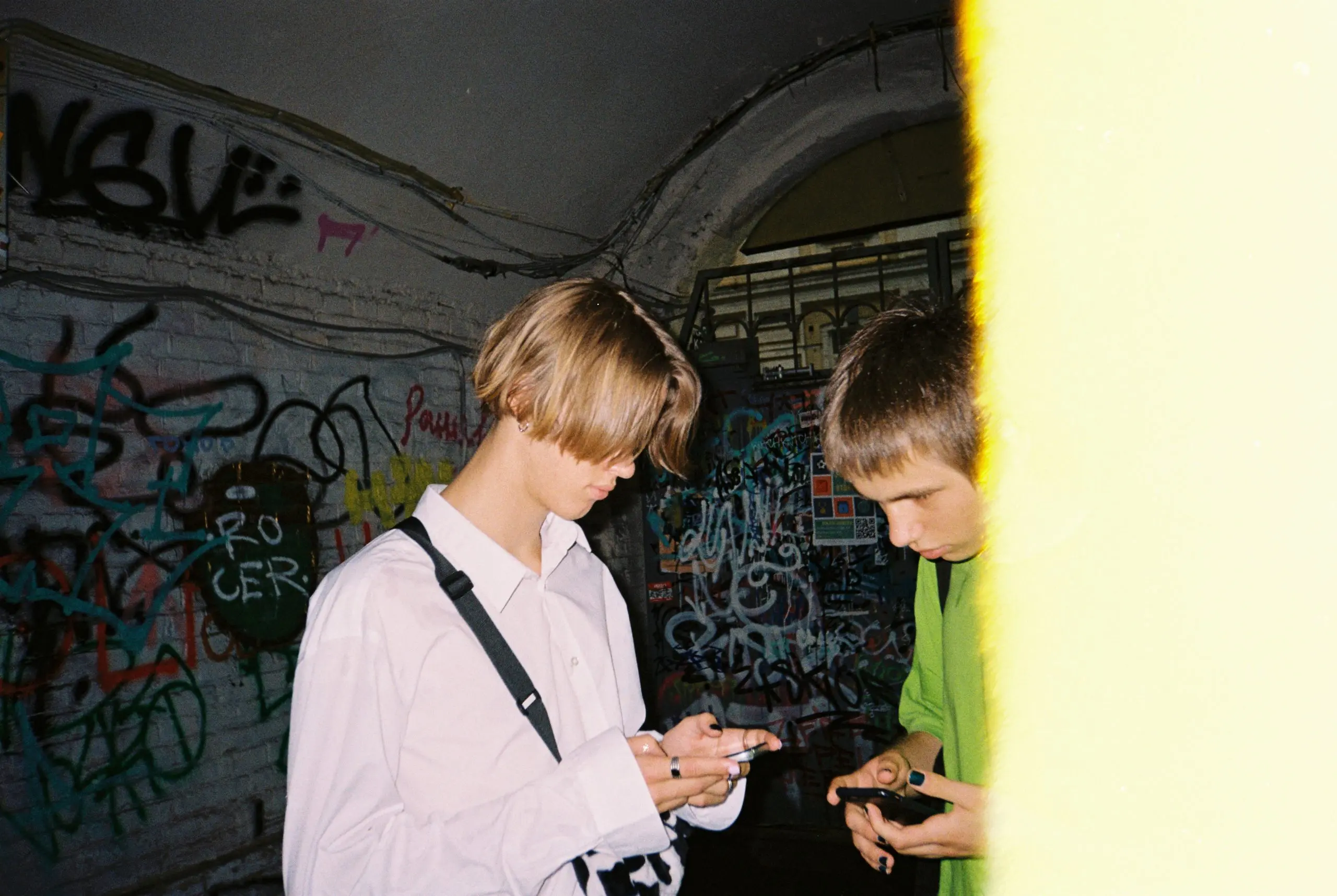Is This OK?
In 2013, the UK's ‘biggest child protection scandal’ began to unravel as the lid lifted on decades of organised child sexual exploitation in the north of England. The investigation was complex, but one thing was clear: the victims of these crimes felt unable to turn to the services that were put there to help them. That’s why, in 2016, a group of charities, changemakers and determined techies came together to create a new space where voices no longer felt they had to remain silent.
TW: This story references cases of sexual abuse and rape.
Meet ‘T’: Female, aged 15-18 years old
T was “spiked a few weeks ago”. She talked about a “guy” who raped her when she thought he was “meant to look after her”. She remembered “fragments”, feeling like she had “no control” of the situation. T is concerned she may be pregnant [...] she doesn’t want to speak to her worker because they will tell a “social worker again” resulting in the police being involved which she doesn’t want at this time.
T is a real, young person who found the ‘Is This OK?’ (ITOK) chat service online. During her interaction, she wasn’t asked for her name, location or any information about her rapist. Her IP address wasn’t tracked. From her initial point of contact, throughout disclosure and referral to Rape Crisis UK she has remained completely anonymous. ITOK is designed to give young people, like ‘T’, an opportunity to question what is happening to them in an anonymous, safe space and receive professional support, without fear of repercussions.
Only when young people feel they have more control and are supported with the skills, knowledge and attitude to make positive changes can they move away from a dangerous situation. There is no quick fix and often their experiences and situations are complex but connecting with ‘Is This OK?’ will be a crucial first step.
How did we get here?
From the late 1980s through to 2013, organised child sexual abuse occurred in Rotherham, Rochdale and surrounding areas. In Rochdale specifically, more than 1,400 children were abused between 1997 and 2013.
The Esther effect
This scale of abuse prompted questions about the support channels available to young people. Particularly interested was the President of Childline – Dame Esther Rantzen, who began exploring with survivors the reasons as to why they felt unable to reach out to current services, including Childline. Survivors’ reasons were three-pronged: They weren’t aware they were actually being abused, until much later on, they were scared services weren’t anonymous and they didn’t believe the services were for them.
This was compounded by generational shifts in modes of communication, as studies show that 75% of millennials avoid calls and 81% get apprehension anxiety prior to a call.
When people hear your voice, they judge you.
Existing services didn’t represent a safe space for these young people, and sadly, we knew that moving forward, there would be others like them. This demographic needed a service that made them feel safe and able to speak up. So, Esther got to creating it. Alongside the Children’s Commissioner for England at that time, Anne Longfield CBE, Esther gathered all the experts you can imagine – CEOs from Missing People, NSPCC, Save The Children, Barnardos, big tech players from Barclays, as well as our co-founder Matt Haworth – all there to discuss the proposed solution which at that time, was an app.
Esther was open to being challenged. Matt pointed out that if we go too quickly down the ‘app route’, we’re potentially replacing one broken solution with another. With that nugget of scepticism, our journey started with ITOK and a team of what felt like child protection power rangers: Missing People, NSPCC, Dame Esther Rantzen and Anne Longfield. But the team wasn’t complete just yet…
Ex-frontline sexual health worker and child sexual exploitation (CSE) whistleblower, Sara Rowbotham, was an instrumental player in exposing the Rochdale grooming scandal, helping to bring perpetrators to court. But it was far from a fair fight. Sara made 181 referrals detailing the abuse and sexual grooming of young people between 2005 and 2011. These claims were dismissed and Sara was ultimately made redundant in 2014.
Having met Sara, she’s not easy to ignore nor does she deserve to be ignored. She lives and breathes the work she does which is why it’s a relief that in 2017, with a little push from good ol’ telly, things started to shift – TV drama ‘Three Girls’ aired on BBC and lit a fire in viewers’ bellies. Sara has since been recognised for her services to protecting young people – receiving Special Recognition at the 2018 NHS Heroes Awards, oh, and an MBE earlier this year.
Sara was the missing piece of the puzzle. Esther brought her in for an interview and by some miracle, Sara turned up on time. She dazzled us with her impressive and yet down to earth expertise and we knew she had to be a part of this.
We put ITOK billboards up in Bradford. I got giddy about it and took photos standing next to them.
Young people, these days
The team was in place, but what about the tech? More than a decade’s experience building digital tools for vulnerable people had led Matt to believe an app wasn’t right. Now we wanted to prove it. Working with an amazing team at Barnardos, we interviewed young people with lived experience of CSE, digging into how they use their most prized possessions – their phones.



We learnt that they were mostly using older, Android smartphones, and if you’ve ever met a teenager you’ll not be surprised to hear that they were running out of storage and data, on the regular. This meant discovering, installing and retaining an app would be too much to ask for most. While social media was central to their digital lives, at that time Cambridge Analytica was making all the wrong kinds of headlines and we knew we couldn’t trust Facebook to be responsible for this type of data.
The power of anonymity
Although not all that common back then, chatbots kept cropping up. We learnt that bots could be a calming, encouraging way of initiating a conversation for young people, bringing with it less commitment and judgement than if speaking to a human. Not only does a chatbot work for young people, it also allows trained professionals to get to those who need urgent help, quicker. This process supported one of our longstanding beliefs: technology must follow the user’s needs, not the other way round. A bot won’t work for every scenario but for our user group, it was as close to perfect as you’ll get.
Childline staff and volunteers really care about reaching out to young people who no longer think of themselves as children but desperately need support and a life-line. They can trust us and be confident that however great the risk, ‘Is This OK?’ understands the importance of confidentiality.
Co-Design
With initial funding from BBC Children in Need, the next step was to co-design the bot with a group of stakeholders, including CSE survivors from our Pilot areas – Bradford and Waltham Forest.
To ensure the survivors could give their most authentic feedback, trust was paramount. We worked with local youth workers in the area to allow young people to disclose their opinions and advice on everything from design to language in a safe, familiar space. The process may seem onerous, but trust and neutrality between the user and the observer results in much richer, more authentic feedback; it also equalises the power balance – an important aspect of delivering trauma-informed research. The results we drew from these consultations hugely influenced the chatbot’s flow, branding, language and more.
Armed with insight, our team built a bespoke chatbot that either escalated conversations to a live chat service with a trained professional from Missing People or Childline, or signposted more information.
Our lived experience group continually emphasised the importance of anonymity and confidentiality. Therefore with ITOK nicknames are used instead of real names, no IP addresses are taken, and cookies are disabled.
We needed to put a blanket of confidentiality and anonymity around it.
Beyond the young persons’ (YP) consultancy group, we also have an advisory board which provides experience and subject matter expertise from all angles. The board includes a parent whose son was coerced into joining a gang, an ex-gang member who has since rebuilt his life and a policeman – able to provide insight into how the authorities might deal with certain issues or challenges we come up against. Each one of these people are invaluable assets to this project and crucial to its success in the real world.
Small pilot, big impact
A small pilot revealed just how needed this service was, with access to ITOK far exceeding expectations:
Almost half of YP engaging in live chat reported they were currently experiencing issues relating to coercive control, sexual or physical violence.
A quarter chose to be connected to a counsellor.
600 people got in touch in 3 weeks, the majority between 13 and 15.
More than 10% got in touch during out-of-hours. Which meant the chatbot was providing a communication channel that otherwise wouldn’t have existed.
“Young person is worried as their friend has asked them to look after a bag for them and told them not to look in it, and young person is fearful their friend may be in a gang. They have considered speaking with a teacher but are worried their friend will get into trouble."
New version, new tech
The pilot proved a need but in the background, our team was greeted with technical restrictions due to the chatbot’s integration with Childline’s live chat software. Reason Digital app developer and full-time legend, Dave, researched LiveChat.com and chatbot.com and it turned out, they’d integrate nicely.
Shiny new additions were made to ITOK, including an unbranded Tetris-style game designed to reduce anxiety, encourage people to stick around while waiting to be connected and to provide an additional layer of confidentiality – with any casual onlooker just seeing someone playing an innocent-looking game.
But it wasn’t all plain sailing. Whilst LiveChat went above and beyond to support us in turning off IP tracking, providing great non-profit rates and maintaining open communication, there was just one hitch. LiveChat has a ’sneak peek’ feature allowing agents to see what the user is typing before they’ve sent it – even if the user decides to hit ‘backspace’. In this scenario, it felt way ‘off’ ethically. Luckily our dev team got their heads down and managed to custom build a Google Chrome extension to block this, meaning the young people were 100% in control of any disclosure made.

To Stoke-on-Trent
For version two, beyond our pilot areas, we targeted Stoke on Trent based on research around levels of sexual exploitation, deprivation and violent crime. Thoroughly supported by the council and local authorities, we marketed ITOK and once again, numbers exceeded expectations. We saw that young people really needed this service:
Over 1000 young people accessed the chatbot in 3 months.
73% of young people said they felt able to make safer decisions after the chat.
81% of young people said they had not used another helpline before.
What’s next for ITOK?
The next few months will see ITOK released in several more areas of the UK, with a long term goal of the service being rolled out to young people across the whole of the country. That goal requires funding, more trained professionals, more marketing in the places where young people are and it requires scaling. We will push hard for all of this because we know there are young people out there still experiencing abuse, coercion and exploitation. And we know – five years after Dame Esther Rantzen questioned why some survivors felt unable to access services – these young people are simply waiting for a safe, anonymous space in which they can ask, “is this ok?”.
